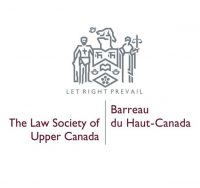Notice to Lawyers Concerning Syndicated Mortgages

On Oct. 24, 2017, the Law Society of Upper Canada issued a notice to lawyers concerning syndicated mortgages and syndicated mortgage investments.
A syndicated mortgage is a mortgage where two or more persons participate as investors. Syndicated mortgages can be as simple as two people lending to a third person, the loan secured against a single family home, or as complex as a group of people pooling individual investments in a major development proposal known as a Syndicated Mortgage Investment (“SMI”).
The Law Society has become aware of instances in the marketplace where individuals have sustained significant financial loss by investing their savings in SMIs in which Ontario lawyers have played a role. The purpose of this notice is to alert lawyers to potential pitfalls when acting for clients on SMIs and to highlight lawyers’ obligations in dealing with syndicated mortgages.
High risk SMIs typically involve a third party entity such as a promoter or facilitator who promotes the investment to investors. The purpose of the syndicated mortgage loan is usually to fund “soft costs” in a development project such as applying for zoning changes, advertising, interior design and architect’s fees or to purchase real property for development.
In these syndicated mortgage transactions, a lawyer may be asked or offered an inducement by the facilitator or promoter to provide legal advice to the investors. The inducement might include the promise to refer investor clients to the lawyer or a commitment to pay the lawyer’s account for the legal advice given to the investor client. In addition, the lawyer may also be retained by the investors to:
• provide independent legal advice to a group or one or more of the investors with respect to the transaction;
• act on behalf of the investors in the transaction; and/or
• hold the syndicated mortgage in trust on behalf of the investors including administering the mortgage proceeds and interest payments.
Before accepting such retainers and during the course of the retainer, lawyers must ensure that they are in a position to act in the best interests of their clients. In addition, lawyers should use care in accepting and fulfilling these retainers to ensure that they comply with their professional obligations.
Some of these obligations include the duty to:
• avoid conflicts of interests in accordance with Section 3.4 of the Rules of Professional Conduct (Rules) including the rules on joint retainers and transactions with clients;
• be honest and candid with the client in accordance with Rule 3.2-2;
• represent clients competently in accordance with Rule 3.1;
• keep books and records in accordance with the provisions of By-Law 9;
• delegate tasks only in accordance with Part 1 of By-Law 7.1 and Section 6.1 of the Rules; and
• not assist in or encourage any dishonesty, fraud, crime or illegal conduct as provided in Rule 3.2-7.
The following are examples of situations that would place a lawyer in breach of the lawyer’s professional obligations under the Rules and other Law Society requirements. A lawyer:
• representing multiple clients in a syndicated mortgage transaction in circumstances where the interests of the joint clients are not sufficiently similar to allow the lawyer to act in the best interests of all of the clients in the retainer;
• providing independent legal advice to one or more investors in the syndicated mortgage transaction when the lawyer has a conflict of interest. For example, the lawyer may possess information relevant to the investor client that the lawyer cannot disclose to this client because of an obligation owed to another client or person;
• delegating to someone who is not a lawyer, the responsibility of reviewing with the client the documentation relating to the transaction and providing the client with legal advice regarding these documents;
• accepting a retainer to provide legal advice to an investor regarding the transaction and/or the agreements and other documents to be signed by the investor and failing to provide such advice competently in accordance with Section 3.1 of the Rules. For example, the lawyer fails to perform all functions diligently and to communicate with the client at all relevant stages of the matter in a timely and effective way. Effective communication may vary depending on the nature of the retainer and the needs and sophistication of the client.
• assisting in or encouraging any dishonesty, fraud, crime or illegal conduct by a promoter, facilitator or other person involved in the syndicated mortgage transaction. Sometimes lawyers are used in such schemes by third parties to give an appearance of legitimacy to an investment that is risky and/or involves dishonesty or other illegal conduct. Lawyers should be on guard against becoming the tool or dupe of an unscrupulous person.
The Law Society has prepared the following resources to assist lawyers in identifying these types of syndicated mortgage arrangements and to highlight some of the lawyer’s ethical obligations when representing investor clients in syndicated mortgage transactions:
Some Characteristics of SMI’s referenced in this Notice
Syndicated Mortgages: Some Professional Obligations
Syndicated Mortgages: Some Practice Tips
Lawyers who have questions or require further information may contact the Law Society at 416-947-3315 or 1-800-668-7380, ext. 3315, Monday to Friday, 9:00 a.m. to 5:00 p.m. EST, and ask to be connected to the Practice Management Helpline.

Leave a Reply